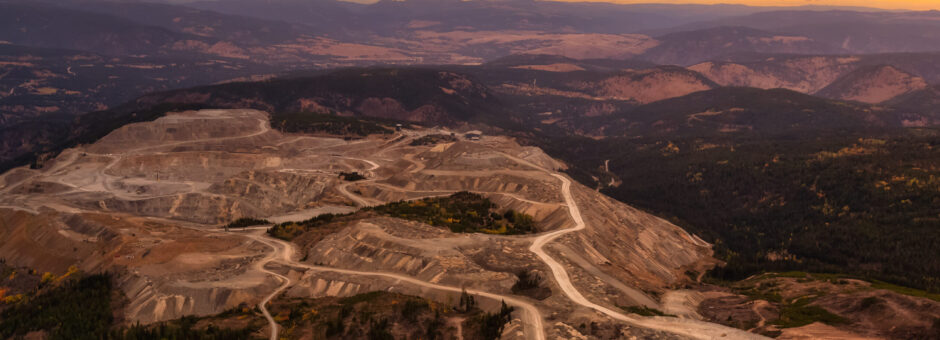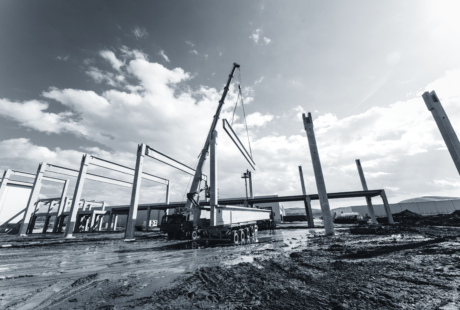Related:
The Challenge of Modern Mining Leadership
When it comes to the Canadian economy, the mining and minerals industry is front and centre, contributing 19% to the total domestic exports and accounting for one in every thirty jobs (direct and indirect) in Canada.1 Mining has played a central role in British Columbia’s economy since the mid-1800s and, since then, the province has made its mark globally as a major mining region and an active centre of influence, innovation, R&D, and geological know-how.
Raw Resources to Fuel the Future
With the worldwide trend moving away from coal as a source of energy and towards clean energy, you may be inclined to think that the importance of mining as a major economic industry is on its way out. Far from taking its bow on the economic stage, mining will play a necessary part in the clean energy shift, with resource-rich BC set for a starring role. But with the highly controversial introduction of an ever-increasing carbon tax in BC 11 years ago and a lack of protection and support for the mining industry, it’s a good time to take a look at the narratives surrounding the tax’s influence on the industry and the province as a whole.
All of the main infrastructure needed to support in-demand clean energy initiatives like solar panels and wind turbines can’t be produced without raw resources such as aluminum, copper, and silver. Electric vehicle production uses 4x the amount of copper than in gas motors and large amounts of aluminum are used in brakes and casings to lighten many of the components.2 BC is Canada’s largest producer of copper, steelmaking coal, and molybdenum (used in the steelmaking process), and the second largest producer of silver. BC is also one of only two provinces in Canada that produces aluminum.3 There has never been more interest in mining the raw materials in BC that are required for building clean energy infrastructure. Despite this peak interest, one only has to put their finger to the wind to see that the BC mining industry has never felt more alienated and disadvantaged as compared to competitors.
BC: Carbon Tax Guinea Pig and Role Model
Given the excellent position that the mineral-rich province is in for current and future mining interests, you would think that the BC government would do all it could to ensure ease of production and attract new business but, since the introduction of the carbon tax, many people would argue that is not the case. BC was the first region in North America to act as a guinea pig for a broad-based carbon tax and, to this day 11 years later, it remains the highest tax in the country and one of the highest in the world in both price and scrutiny.
Jock Finlayson from the Business Council of BC is concerned that businesses in industries like pulp and paper, mining, and food processing won’t be able to compete with rivals in other provinces because of the high price of energy.4 The Senior Advisor of Public Affairs at the Mining Association of BC claimed that the 2021 budget missed a big opportunity to change the carbon tax and level the playing field for BC’s mining sector.5
He went on to say that “BC is the only jurisdiction in the world with a robust carbon pricing regime that provides essentially no support to its energy-intensive trade-exposed industries, such as mining. As a result, the risk of carbon leakage from BC is real,”
To put it into perspective, under the federal model, ON pays only a quarter of the carbon tax that BC pays.6 Alberta, who was added to the federal carbon tax in 2019, has fought tooth and nail against it calling it “unconstitutional” and looking for an approach that, according to Premier Jason Kenney, “Imposes the least damage on jobs and Alberta’s economy and the least cost on Alberta families.”7 It’s safe to say that BC, who self-imposed the tax back in 2008 and has since quadrupled it, is on an uneven playing field both within the Canadian and the global mining industry.6
Controlling the Narrative
Supporters of the carbon tax, including the World Bank and the United Nations, pitch BC as a model for other jurisdictions to follow in the worldwide gravitational pull towards clean energy.8 A paper reviewing the latest “grand experiment” in environmental policy by Duke University academics Brian Murray and Nicholas Rivers reported that the tax has had a noticeable impact, reducing fuel consumption and greenhouse gas emissions by up to 15% compared to what it might have been without the tax. Economy-wise, they state that BC’s real GDP between 2007 and 2014 grew 12.4%, stronger than the Canadian average.9 Opponents challenge this rosy economic view noting that many studies with positive outcomes tend to minimize the impact on emission-intensive sectors, stating only that the tax has had a negligible effect on economic performance as a whole while ignoring industry specifics.
If one thing has become abundantly clear, it’s that this is not a black and white issue. The further we get into living with the reality of this shift in resource management expectations, the more grey areas peek through the cracks. Change is, by its very nature, uncomfortable and comes with a lot of trial and error.
Henry Golbeck of Goldbeck Recruiting states that “If we’re going to be used as the testing ground for North Americans considering taking on a carbon tax initiative, then we should control the narrative. We should be spending more time thinking about how this tax can benefit us across all industries without disregarding natural resource management. We’re missing an opportunity to walk a central line here.”
The mining industry and the government need to work together to reach a happy medium where BC mining is not left at such an economic disadvantage that they lose out to economically advantaged competitors.
The carbon tax has provided the basic funding for BC to invest in reducing emissions and become a worldwide leader for clean energy practices, but is the cost becoming too high? As a society, we need to carefully consider the next steps to address the grey areas and reach a positive narrative for both the environment and economy.




